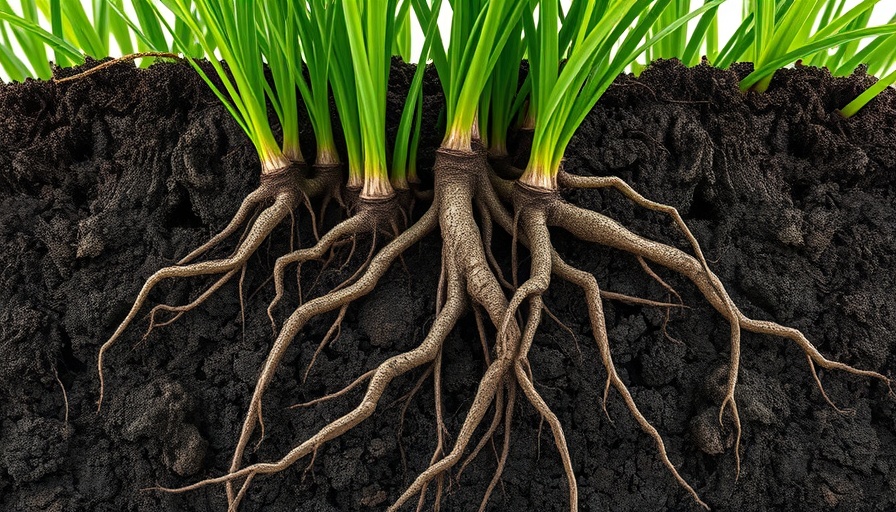
Understanding the Ecosystem Beneath Our Feet
When it comes to gardening, many people think of soil as a mere medium for growth. However, what lies underneath is a bustling ecosystem, teeming with life. From beneficial bacteria to earthworms, billions of organisms work together to create a healthy growing environment. This ecosystem is crucial not just for plants, but for the entire earth's wellbeing. In fact, research has shown that soil health directly impacts food production and, in turn, our health.
The Amazing Benefits of Soil Inoculants
One of the simplest yet most effective ways to boost your garden’s performance is by using soil inoculants. These viable microorganisms enliven the soil, enhancing nutrient availability and improving plant health. The benefits of maintaining good soil health include:
- Improved moisture retention
- Reduced soil erosion
- Enhanced nutrient absorption
- Defense against pathogens and pests
Especially, mycorrhizae fungi help create aggregates that bind soil particles together, reducing erosion and ensuring plants maintain their nutrients. By using soil inoculants, you’re not just investing in your garden but also in sustainable practices that help restore our planet.
Diverse Types of Soil Inoculants
Soil inoculants come in various forms, each offering unique advantages. Biofertilizers introduce beneficial microorganisms that assist in nutrient cycling. Nitrogen-fixing organisms convert atmospheric nitrogen into a form accessible to plants, reducing the need for synthetic fertilizers. Microbes like Trichoderma can protect plants by controlling pathogens in the soil. Understanding these different types can help you select the most effective inoculants for your gardening project.
Practical Tips for Soil Inoculation
Improving soil health is attainable even for novice gardeners. Here are some practical tips to enhance your garden with soil inoculants:
- Incorporate compost into your soil regularly to naturally boost microbial diversity.
- Consider planting cover crops like clover to both improve soil structure and add nutrients.
- Apply inoculants directly on seeds or as a drench around plants, timing it for when your plants most need nutrients.
Remember, a healthy soil can significantly reduce the incidence of plant diseases and improve overall plant vigor.
The Importance of Soil Health in Urban Gardening
With the rise of urban gardening, understanding soil health has never been more imperative. Urban areas often face unique challenges like soil contamination or compaction, making it crucial to employ soil inoculation strategies to revitalize the land. Community gardens across cities are proactively installing programs focused on enhancing soil quality, often involving schools and local organizations. These initiatives empower city dwellers to play a role in sustainable practices while enjoying the benefits of homegrown food.
FAQs About Soil Inoculants
With a wealth of information available, it's normal to have questions regarding soil inoculants.
-
What’s the best time to apply soil inoculants?
It's typically best to apply them during planting or when preparing the soil in the spring. -
How often should I use soil inoculants?
Depending on your gardening goals, using them every planting season is ideal. -
Can I make my own soil inoculants?
Yes, composting and engaging in practices that encourage microbial life can create a rich inoculant.
Equipped with this information, you’re set to embrace the natural powers of your garden’s ecosystem fully.
As you embark on your gardening journey, consider the profound connections between soil health and plant vitality. Utilizing soil inoculants not only benefits your plants but contributes to a more sustainable future. Explore various methods to enhance your gardening efforts while cherishing the earth beneath your feet, making a positive impact today!
 Add Row
Add Row  Add
Add 




Write A Comment